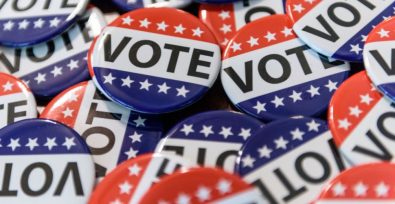In a significant shift, California and Nevada are among the latest U.S. states advancing measures to abolish forced labor in prisons. This effort targets a clause in the 13th Amendment of the U.S. Constitution, which permits slavery and involuntary servitude as a punishment for crime.
As voters prepare to weigh in on this issue in the upcoming November elections, the push to reform prison labor is gaining momentum. More than half a dozen states have already passed amendments to close this gap, with many others actively pursuing similar legislation. The movement, which transcends traditional political and racial lines, underscores a broader reckoning with the remnants of systemic injustice in the United States.
The Reality of Prison Labor
Currently, around 800,000 people incarcerated in U.S. prisons work under conditions that advocates describe as exploitative. Officially, prison labor is framed as a means of rehabilitation, offering incarcerated individuals job skills that could aid their reintegration into society. However, for many, these jobs come with wages far below the minimum, perpetuating cycles of poverty and marginalization.
Christopher Blackwell, an incarcerated writer and prison reform advocate in Washington state, likens the current system to slavery, noting that even when prisoners are paid, the amounts are so minimal that they offer no real opportunity for financial stability or personal development. In Washington, for instance, prisoners can earn up to $2.85 an hour, one of the highest rates in the country, yet even this falls drastically short of a livable wage.
Critics of the system argue that the true costs of maintaining such low wages are hidden. A recent study suggested that ending unpaid labor in U.S. prisons could generate up to $20 billion annually by enabling incarcerated individuals to better support themselves and their families. Moreover, allowing prisoners to earn fair wages could reduce recidivism and enhance their post-release opportunities, ultimately benefiting society at large.
The path ahead
As states like California and Nevada prepare to put this issue to a vote, the implications of their decisions could resonate nationwide.
The Irish Times reports,
The legislative process was an “emotional rollercoaster,” said Jeronimo Aguilar, a policy analyst with the advocacy group Legal Services for Prisoners with Children.
“The saying, ‘As California goes, the country goes’ – I think that there’s a lot of truth in that,” Aguilar said.
We’re counting on both states to vote yes to abolishing prison slavery this year and, along with our partner Legal Services for Prisoners with Children, we’re continuing the fight to end slavery in the U.S. nationwide.
For years, the Freedom United community has been calling for an end to forced prison labor in the U.S. Join the movement and sign our petition to remove slavery from the U.S. Constitution.







Freedom United is interested in hearing from our community and welcomes relevant, informed comments, advice, and insights that advance the conversation around our campaigns and advocacy. We value inclusivity and respect within our community. To be approved, your comments should be civil.